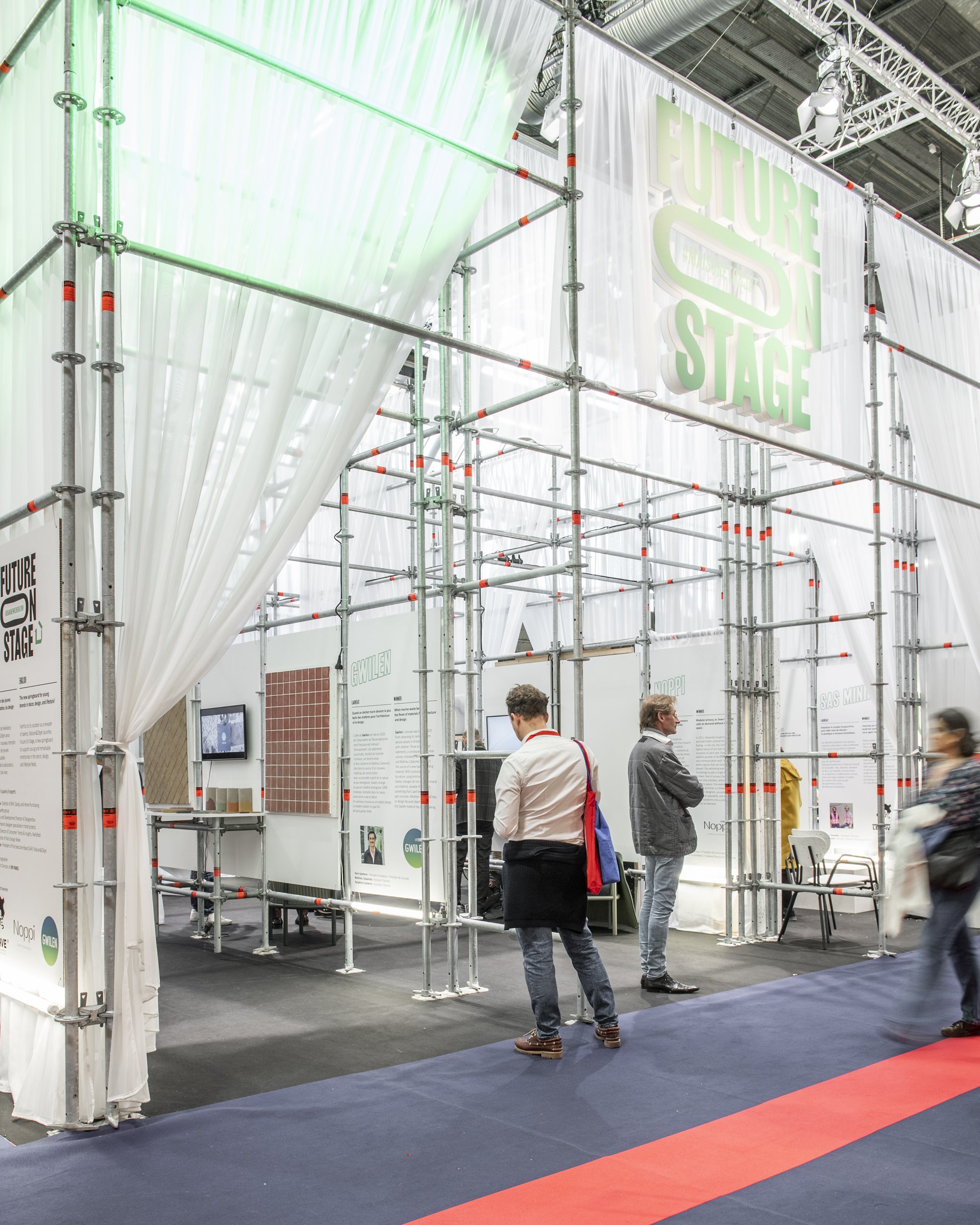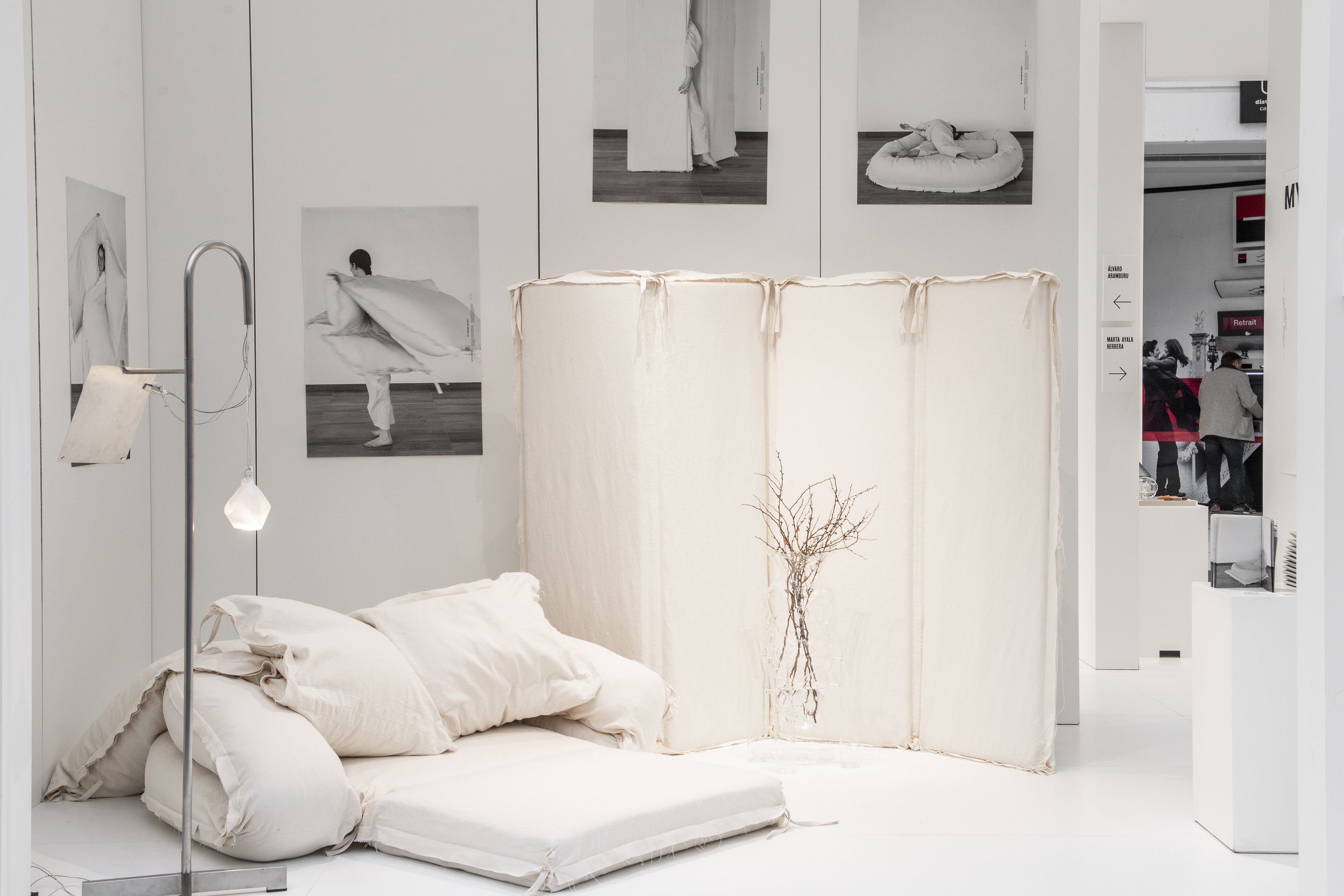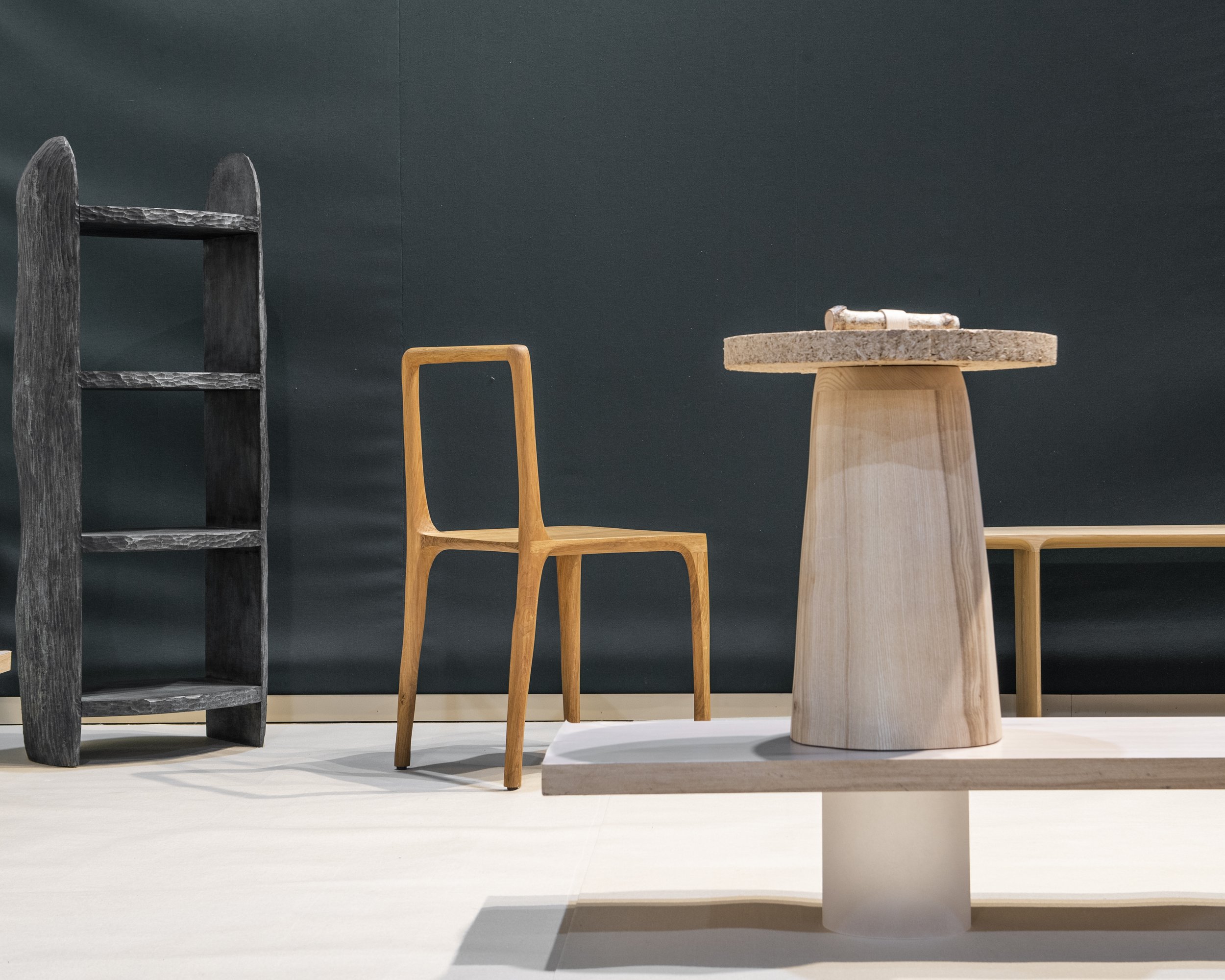Caring is Sharing
The theme of the January 2023 edition of Maison&Objet was Take Care! (image: Maison&Objet).
Picking a theme for a design trade fair is a high-wire act. Can a handful of words or a phrase draw together the work of so many designers and brands from different corners of the world, all housed under the same cavernous roof for a few days?
Too narrow a theme and you risk boxing designers in; too general and it could appear meaningless. For its January 2023 edition, Paris’s Maison&Objet sought to resolve this dilemma by choosing an instruction – Take Care! The peppy exclamation mark is an exhortion, like one might give to a friend at parting, but behind the jaunty messaging a more pointed message emerged. Care for the the planet and its resources, yes, but also of people and each other. Care is also work and, in a political climate in which many things feel distinctly un-caring, a potentially radical act. A close cousin of altruism, care asks you to give, provide, and protect. It also implies consideration, and if anyone knows how to make decisions carefully, it’s designers.
Future on Stage presents three studios deemed to have placed sustainability at their centre.
Maison&Objet’s Future on Stage project encapsulated this caring approach. Three new brands, all French, were selected by an independent jury for both their innovation and commitment to the environment. The most intriguing of the Future on Stage trio is Gwilen. Founded by Yann Santerre, the brand turns Breton mud into something beautiful. The mouth of the river Vilaine (which unfortunately translates as ugly) has regularly silted up since the construction of a dam along its course. Gwilim sifts this sediment and turns it into terracotta-style tiles using natural pigments and a no-bake method. It’s a pleasingly circular human-made riposte to a human-made problem. Importantly, Future on Stage did not simply provide a platform of visibility to its three winners. Each brand will now be mentored through the programme by Maison&Objet for six months in a commendable demonstration of duty of care.
Also included in the programme, furniture makers Noppi displayed two multi-format chairs stuffed with recycled materials, inspired by the desire to create furniture that can double as soundproofing for noisy city living. Orri, an updated geodesic take on the mid-century egg chair, can be reconfigured using two discrete pull tabs to turn it into a cocoon. Sas Minimum, meanwhile, presented Le Pavé, sheets of plastic in slab form made from 100 per cent recycled post-consumer and industrial plastic waste from its research centre on Île-de-France. Particularly attractive are its panels that incorporate shredded multi-coloured bottle caps on a white base, creating a playful funfetti effect. The material has also been used to create simple stacking chairs currently on display at Centre Pompidou, and will form the basis of 11,000 folding chairs for the swimming pools of the 2024 Paris Olympic Games – handy as the material is totally waterproof.
My Shame In Soft by Marta Armengol, one of Spain’s Rising Talents.
The upcoming Olympics was also on the minds of Hall Haus, a collective composed of Abdoulaye Niang, Sammy Bernoussi, Teddy Sanches and Zakari Boukhari – designers who prioritise multicultural collaboration with a global network of artisans. A sculptural wide bench made of sunshine yellow-coated perforated metal supported by two concrete plinths is their response to what they see as Paris’s hostile architecture in its lack of public seating ahead of the Games. The pattern of circular holes is an homage to Barber & Osgerby’s 2012 Olympic Torch, making it a cheeky invitation for the city to take them up on the offer of more human-focused design. After all, a city should take care of people who would like somewhere pleasant to rest.
Careful material choice was in evidence at this year’s Rising Talent awards, which championed young designers from Spain: Marta Ayala Herrera; Max Milà Serra; Miguel Leiro; Inés Llasera and Guillermo Trapiello; Marta Armengol; Alvaro Aramburu; and Josep Safont. Brimming with national pride, the talk of the trade fair was how “on fire” (or should that be fuego) the Spanish design scene is currently – such generalisations should be taken with a pinch of salt, but it remains of interest to observe how trends and excitement over different design traditions can bubble up. Marta Armengol displayed My Shame In Soft, a collection of modular pillow-like furniture sheathed in natural fibres and stuffed with recycled cotton, cork and sheep wool. Designed in proportion to the human body, they looked like a pillow fort crossed with a conversation pit.
Cedric Breisacher re-uses wood chips from his own workshop.
Amongst their playful designs that include a sea-blue chair made with inflated nautical tenders, Inés Llasera and Guillermo Trapiello – aka Tornasol Studio – displayed a trio of lamps that from a distance look like colourful rice paper lanterns, but are actually knitted socks of hardy fishing nylon stretched over a wire frame. Over in the craft section, Josep Safont displayed intricate tapestries that upon closer inspection are revealed to be embroidered onion skins, which he collects, dehydrates and irons flat before sewing together. Treating vegetable peelings like precious silk seems like the embodiment of taking care.
Another painstaking and creative re-use of material waste came from Cedric Breisacher, who was showing the culmination of an extensive research project into the possibilities of designing with leftover materials. Having gathered the wood chips from the floor of his workshop for some years, he’s developed a method of binding them with glue made from potato starch to create a stool. For a side table, he saved all the shavings from carving the base and compressed them into a disc to serve as the tabletop – a perfectly circular piece of design. Re-use and re-invention doesn’t need to stop at materials either, as shown by Bethan Laura Wood’s presentation of her collaboration with Poltronova. Her digital terrazzo print inspired by the marble floors of Venice, realised in psychedelic shades, covers the Superonda sofa, a radical wavy frameless design that debuted in 1967.
Care for nature, for community and for history were all in evidence at this Maison&Objet. Even the minor travel disruption prompted by France’s general strike seemed to underscore this theme – solidarity, after all, has caring at its core.
Words India Block
Photographs Maison&Objet




